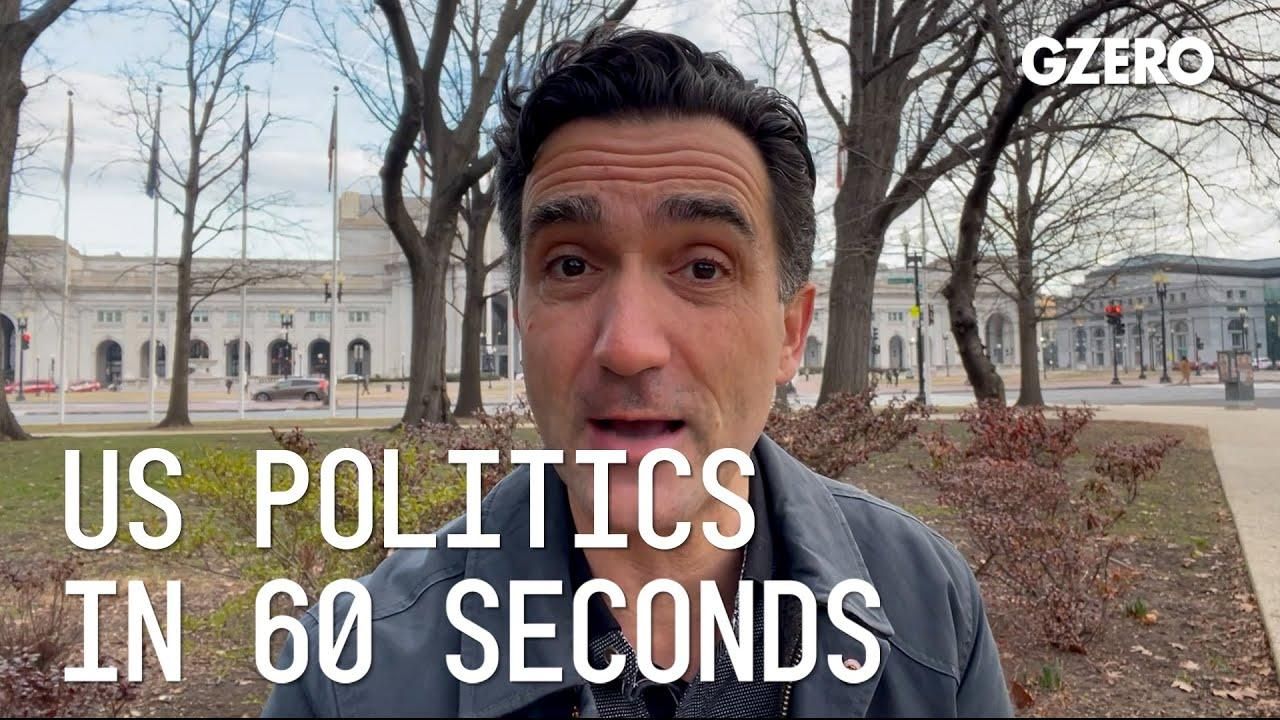US Politics In 60 Seconds
State of the Union a Biden 2024 campaign preview

State of the Union a Biden 2024 Campaign Preview | US Politics In :60 | GZERO Media

Jon Lieber, head of Eurasia Group's coverage of political and policy developments in Washington, DC shares his perspective on US politics:
What are three takeaways from Joe Biden's State of the Union address?
The first takeaway is that Joe Biden is definitely going to run for reelection. There was some question about this prior to the midterm elections when Democrats did surprisingly well. But based on the content of last night's speech, which was more of a campaign rally than anything else, where he took a victory lap for his efforts on climate change, where he took digs at his political rivals, the Republicans, and where he really laid out a vision of what the next six years of a Biden presidency might look like, it seems very clear that this man is going to run.
Two, is that foreign policy's just not that important to that reelection effort. In a speech where Biden spoke for over an hour last night, he spent less than five minutes talking about the two major geopolitical issues that will mostly define his legacy. The first being the war in Ukraine, and the second being the geopolitical conflict with China, who just sent a spy balloon over the continental United States last week that Biden didn't address at all. Foreign policy, not on top of mind for American voters, not heavily featured in Biden's campaign speech.
And three is that, while I hate to say it, the State of the Union might be slightly outdated. It used to be that the State of the Union was an annual way for the president to get in front of Congress and one of his key ways of communicating to the American people. But now between social media and wall to wall cable news coverage, the president has so many outlets for getting these messages out that the State of the Union is kind of a dull event. It was a lot of rehashed policy ideas. Biden talked about things that have been on the political agenda for well over a decade, including immigration, healthcare, taxing millionaires and billionaires, and there wasn't that much new or imaginative in this speech, but it was a chance for him to show that he's got the energy, at least for an hour at a time, to run for reelection.
In this “ask ian,” Ian Bremmer addresses the aftermath of the US military operation that captured Nicolás Maduro, calling the results so far “pretty successful.”
New international org just dropped #PUPPETREGIME
We’re moving toward a world where roads don’t just move traffic — they enable services and transactions. Mastercard is working with Volvo and the North Carolina Turnpike Authority on a pilot that explores in-vehicle toll payments without transponders, signaling how V2X connectivity can make infrastructure a platform for data and payments. This future of connected transportation aims to make travel safer, smoother and smarter. Read the full article here.
100 million: The number of people expected to watch the Super Bowl halftime performance with Bad Bunny, the Puerto Rican superstar and newly minted Album of the Year winner at the Grammys.